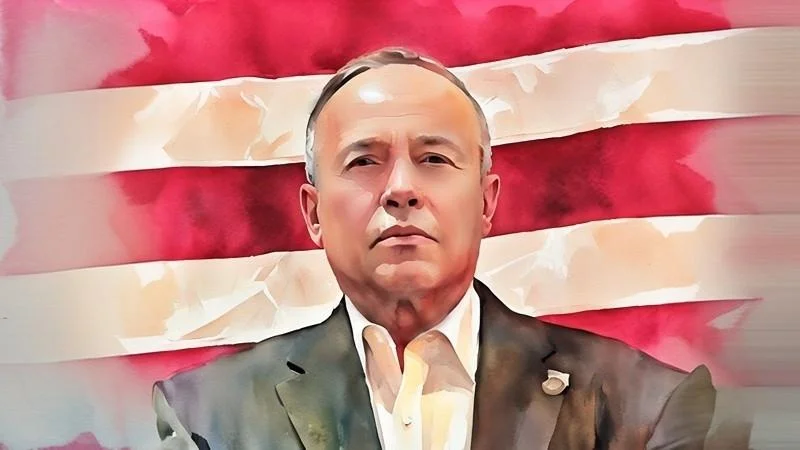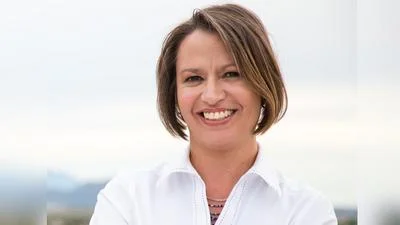The recent decision by commissioners in Dona Ana County to end the practice of opening meetings with a prayer sparked reactions in southern New Mexico. For Juan Garcia, chairman of the Coalition of Conservatives in Action (CCIA), the move reflects a gap between political leadership and community values.
Garcia leads CCIA, a grassroots organization based in Las Cruces focused on civic involvement, transparency, and conservative values. As a former military servicemember and longtime resident of the area, Garcia says he had “no interest in politics” until he became concerned with the direction of local governance and community engagement. “I got tired of complaining,” he says. “My wife said, ‘Why don’t you do something about it?’ So that’s what got me started.”
He says that what began as casual observation evolved into regular attendance at school board and city council meetings. Over time, Garcia found his voice and his mission. “We got involved because we saw things that didn’t make sense to us. There’s a need to push back, to speak up for people who aren’t being heard.”
That includes responding to the Dona Ana County Commission’s July vote to discontinue prayer invocations at meetings. “This is part of our tradition, part of our culture,” Garcia says. “This decision is political, and I think it’s a slap in the face to a lot of people in our community who value faith.” He points to the regular involvement of clergy, first responders, and other community members in offering the invocations over the years. “It’s not about pushing religion. It’s about acknowledging the values that shaped our country.”
Garcia says the faith community is beginning to mobilize. “They’re waking up. People are frustrated and disappointed, but they’re also motivated. We’ve had pastors and leaders reach out, asking how to get involved, how to run for office, how to make a difference.” He adds, “The silver lining is that decisions like this push people out of complacency.”
Garcia says that many residents feel unheard. He points out that elected officials are not always receptive to public input, he says, “Some are, but many are not– they’re polite, they’ll nod, but it’s clear they’ve made up their minds,” he says. “It’s very discouraging for people who take the time to show up, write emails, and speak at meetings.”
According to Garcia, engaging the community is a challenge. “People say, ‘What’s the point? They don’t listen anyway.’ But, he says, “It matters–we can’t just complain about things if we’re not voting, not attending meetings, not running for office.”
Garcia sees connections among the issues facing Las Cruces, including crime, education, and economic opportunity. “You can’t separate them,” he says. “If you want to reduce crime, invest in education. If you want to fix homelessness, look at economic development. If you want to improve border security, start by addressing the lawlessness that comes with a broken system.”
Garcia believes crime is the biggest issue locally. “Everything comes back to public safety. People don’t feel safe in their neighborhoods.” He ties crime directly to homelessness and drug use. “We need more treatment options, more mental health support. You can’t arrest your way out of homelessness.”
He also highlights border security as a concern. “We’re in a border community, and we see things differently here,” he says. In his view, this isn’t about politics. “This is about safety and common sense.”
Garcia is frustrated with how legal immigration has become increasingly difficult. “We’ve got good people who want to work, contribute, do it the right way, and they get caught in a system that doesn’t make any sense. It shouldn’t take ten years.”
He says much of this could be improved with better use of technology and more accountability. “We live in a country where you can do a full background check in minutes, but we act like this is impossible. It’s bureaucracy and politics, not capacity.”
Garcia says more residents in southern New Mexico should take ownership of local issues. “People say, ‘We get the leaders we deserve.’ That’s true if we don’t show up.” He believes change begins at the local level. “I always tell folks, whether you're a Christian, Muslim, agnostic, whatever — your voice matters. If you want things to change, get involved.”
He encourages others to join CCIA’s efforts, emphasizing that the organization’s work is driven by community, not party. “We're about action, not talk. If you care about what's happening, there's a place for you here.”
Garcia says change is possible with increased awareness and engagement. “We know what we should be doing,” he says. “Now it’s just a matter of doing it.”





